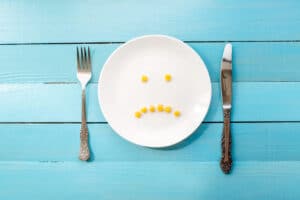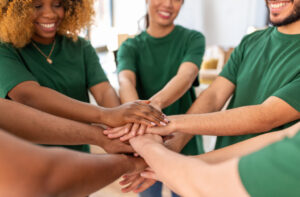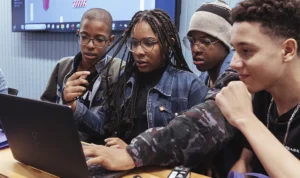Rodrigo Pipponzi, founder of Grupo Mol, shows how entrepreneurship was his path to inspiring the culture of donation in Brazil
With a Business Administration degree in hand, it was expected that young Rodrigo Pipponzi would join the family company, Droga Raia. Instead, he decided to found his own business to create social impact and fuel the donation culture in Brazil.
In 2007, he and his partner Roberta Faria founded Editora Mol to produce magazines, sell them in Droga Raia pharmacies and convert part of the revenue into donations to GRAAC (Support Group for Adolescents and Children with Cancer).
After a few years on the road, the model gained scale: the publisher became the Mol Group, which sells magazines in 14 retail chains in almost 6,000 stores in Brazil and has already donated R$ 50 million to 120 partner organizations — and has other arms, such as social impact consultancy and an institute to promote the culture of donation.
“Gone are the days when companies looked at social problems and said 'that's not my responsibility'. Business is also a tool for transformation,” says Pipponzi. In an interview with iFood News, he talks about how entrepreneurship can be a way to inspire social transformation.
What motivated you to be a social entrepreneur?
I came from an entrepreneurial family, and of course there was an expectation that I would naturally enter the business. But I felt restless because I wanted to be an entrepreneur, do new things, put my values into practice. For me, it would be very difficult to adapt to a ready-made company, even if I admired my father.
Furthermore, I was always very bothered by the fact that I lived in a society where the elite ignored social problems, placed responsibility on the government and said “that's not my problem”. When I got to know the third sector, especially GRAAC, it clicked and I realized that entrepreneurship could come with the word “socially” next to it.
How did the idea for a social impact publisher come about?
I started finding ways, and the big turning point was Sorria! magazine, which connected my purpose with the family business. At the time, it was a bit of a crazy experience to sell magazines in pharmacies to pass on resources to GRAAC. Nobody really believed that it would work, but it did.
The magazine shaped Editora Mol's business and allowed us to create a business model that generated a lot of social impact. We have donated more than R$ 50 million since 2007. In 2021 alone, it was R$ 9 million. Smile! it opened our minds to a very powerful business model. When we saw ourselves, in five years, building a hospital, it became clear that there was an impressive capacity to raise microdonations in retail. The future lay in making this model scale.
I had a very clear vision that if the magazine worked at Droga Raia, it could be successful in other retailers. We tested new partnerships, such as with Pão de Açúcar and Ri Happy, and adapted to retailers of different sizes and sectors. Grupo Mol has become an ecosystem that aims to build a donor nation and expand the culture of donation in Brazil.
Why is it important to cultivate this culture of giving?
Because the government alone will not resolve all issues. It is necessary to strengthen organizations that work together with the government and companies to mitigate the problems we have in the country. We need the third sector, and the third sector needs donations and structured philanthropy, with continuous participation from companies and individuals.
But, for people to participate, it is necessary to talk about donation, educate so that everyone understands its value, because there are still barriers such as lack of trust and income. The culture of donation brings a very important sense of collectivity.
Donating should be like voting, because it is an act of civility, of wanting the best for your country. If everyone gives their part, within their possibilities, we transform the culture of individuality, in our own way, into a culture of collectivity.
The donation is also an efficient income transfer tool. We live in a system of wealth accumulation, and donations are a way of transferring this accumulation, of making these resources reach those who need them most. Donating, be it time, money or knowledge, is a tool we have in our hands to promote transformation.
How does social impact fit into Grupo Mol’s strategy?
Social impact is the center of our strategy: all our decisions are made from there. Our products exist to generate donations, and the counterpart is that they bring us profit, and not the other way around.
The cake is the same — the recipe —, we just change the proportion of what we donate and what we profit. For every R$ 4 donated, we have R$ 1 in profit. In our model, if we don't donate, we don't profit. The logic of our model is that people buy the magazine for the first time to donate, but then read a cool product that fits in their pocket, and become repeat readers.
Today I am also part of the private social investment committee at RD [a company created from the merger of Droga Raia with Drogasil in 2011]. Being able to influence the social strategies of a gigantic business, with 50 thousand employees, is very valuable.
Why should companies care about their socio-environmental impact?
We live in a serious social context, especially after the pandemic, and we know that these problems will not be solved by one sector, but by collaboration between companies, governments and social organizations.
Companies are elements of transformation and are recognizing this. Responsibility grows because they own the capital and have the financial and social capacity to promote change; Their strategies directly influence the world we live in. It is interesting to see that they are influencing each other for the good. Collaboration is the new competition.
What change do you want to see in the world?
The first is to have a healthy planet to live on. In philanthropy, my big dream is that we can build a more generous, more collective society, which better understands the value not only of donating, but of civic participation, of knowing that your actions affect other people. A society that holds hands much more and looks at the same place, and not an individualized society, in which everyone only looks at their own navel.
5 steps to strengthen the culture of donation
Private investment in the social sector grows again in Brazil
NGOs use technology to boost donations aimed at combating hunger, education and the environment


